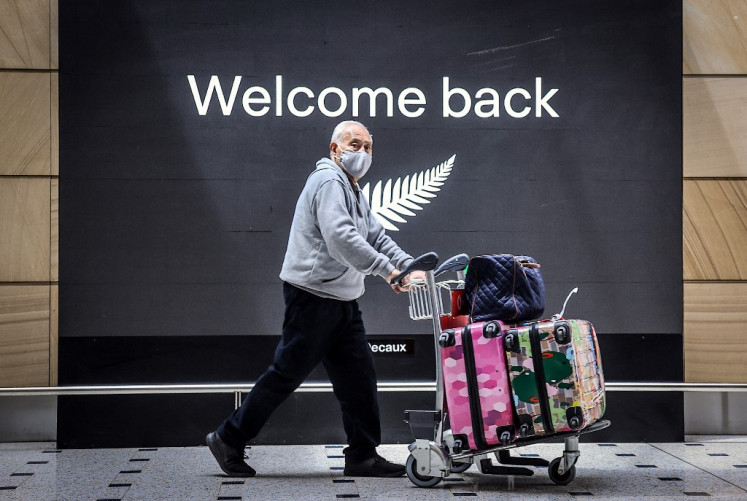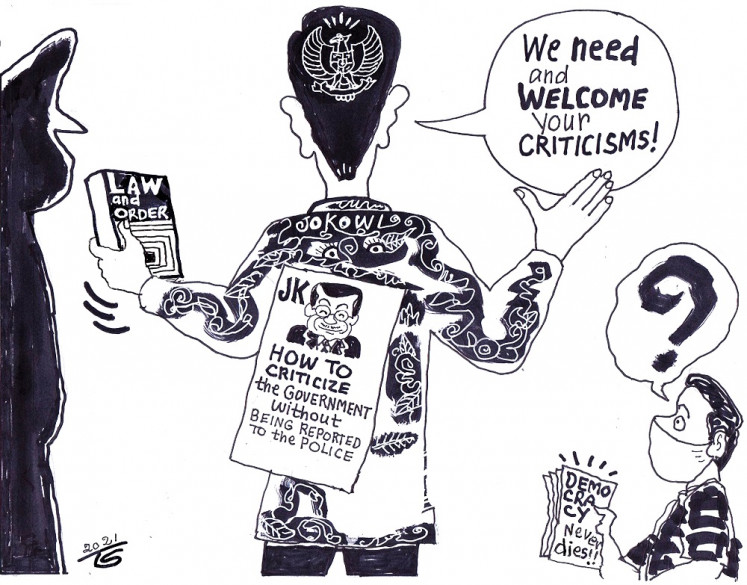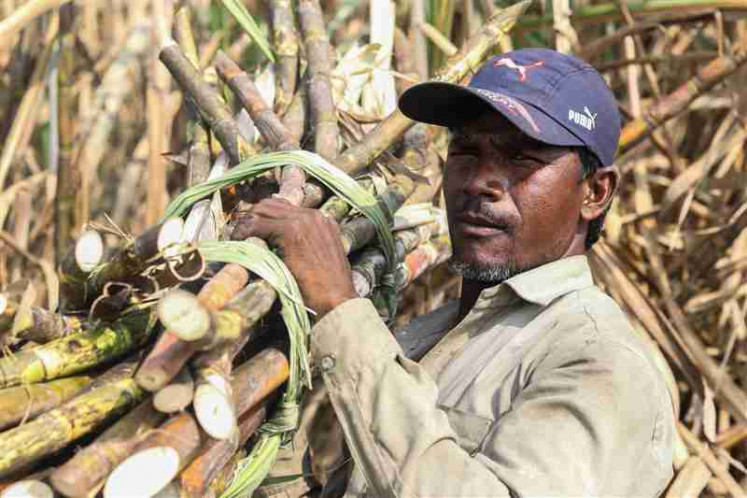Popular Reads
Top Results
Can't find what you're looking for?
View all search resultsPopular Reads
Top Results
Can't find what you're looking for?
View all search resultsG7 and guests from global south hail "courageous" defenders of democracy
In a statement on "resilient democracies" that did not explicitly mention Russia or Ukraine, the G7, India, Indonesia, Senegal, Argentina and South Africa reaffirmed their commitment to the rules-based international order.
Change text size
Gift Premium Articles
to Anyone
 US President Joe Biden (center-right) hugs Indonesia's President Joko Widodo (center-left) as they pose for a family photo with G7-leaders and participants of the outreach program on June 27, 2022 at Elmau Castle, southern Germany, where the German Chancellor hosts a summit of the Group of Seven rich nations (G7). During the summit running from June 26 to 28, 2022, G7-leaders are to discuss their united front against Russia and troubling weakness in the world economy. (AFP/Tobias Schwarz)
US President Joe Biden (center-right) hugs Indonesia's President Joko Widodo (center-left) as they pose for a family photo with G7-leaders and participants of the outreach program on June 27, 2022 at Elmau Castle, southern Germany, where the German Chancellor hosts a summit of the Group of Seven rich nations (G7). During the summit running from June 26 to 28, 2022, G7-leaders are to discuss their united front against Russia and troubling weakness in the world economy. (AFP/Tobias Schwarz)
T
he Group of Seven rich democracies and five developing countries invited to the G7 summit this year hailed the "courageous defenders" of democracy that stand against oppression in a joint statement on Monday.
In a statement on "resilient democracies" that did not explicitly mention Russia or Ukraine, the G7, India, Indonesia, Senegal, Argentina and South Africa reaffirmed their commitment to the rules-based international order.
Meanwhile, German Chancellor Olaf Scholz said at a summit of the Group of Seven rich democracies on Monday there would be no return to the times before Russia's attack on Ukraine, which had ushered in long-term changes in international relations.
"When the situation changes, we have to change," Scholz said in a televised statement at the end of the second day of the G7 summit taking place in a castle resort in the Bavarian Alps.
Scholz, who is hosting this year's gathering, said that the G7 leaders had held constructive discussions with the guest nations on Monday - India, Indonesia, Senegal, South Africa and Argentina - which he labeled "democracies of the future".
"It is good, important and necessary that we talk to each other. Listening to each other creates mutual understanding and makes our work easier," he said, quoted by Reuters.
Thorsten Brenner, director of the Global Public Policy Institute, noted that "a crucial task" facing the G7 "is convincing many non-Western countries who are sceptical of sanctions that the West is mindful of their concern about rising energy prices when designing sanctions".















